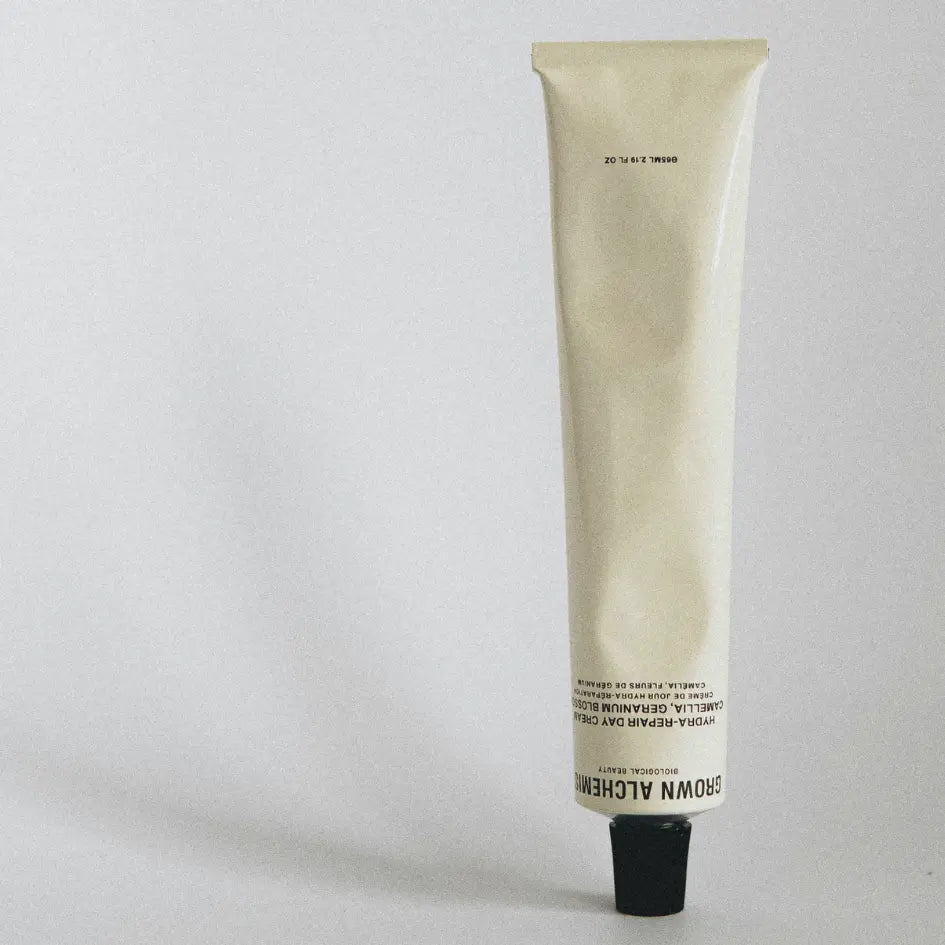Reistor
Our ratings are based on a scale from 1 (Avoid) to 5 (Top Choice).
See how we rate.
The Shifting Gaia rating evaluates brands based on sustainable practices, ingredients and materials, and social responsibility, among others. Below are a few factors influencing this brand's score:
overview
about
Reistor is a fashion brand producing clothing from sustainable fabrics with a focus on minimal, timeless designs. Highlights
• Zero-waste packaging
• Low-impact fabrics
• Carbon-neutral
• Woman-owned
• OEKO-TEX® and Bluesign® approved dyes
sustainability
details:
Packaging
Products are shipped in home-compostable garment bags made from corn-based fiber and enclosed in reusable natural-fiber tote bags, eliminating conventional poly bags entirely. Even the ancillary packaging components are thoughtfully designed for zero waste. Hang tags are printed on plantable seed paper, and shipping mailers are made of cornstarch that can biodegrade or even be repurposed as planters.
Ingredient Sustainability
Many Reistor garments are made from 100% hemp, a natural and renewable fiber that requires up to 90% less water than cotton and grows without pesticides. Hemp is fully biodegradable and extremely durable, giving garments a longer lifespan. Reistor's hemp fabric comes from an Oeko-Tex®-certified facility. Reistor uses 100% Bemberg™ crepe in certain dresses as a sustainable alternative to silk. Reistor also utilizes Tencel™. The pajama sets, for instance, are 100% Tencel™. Tencel is biodegradable and produced with minimal environmental footprint (over 99% of the organic solvent is recovered and recycled in production).
Some Reistor pieces use a Modal-spandex blend for stretch and comfort. The modal itself is sourced from sustainably managed forests (often by Lenzing as well) and produced in a low-impact process that uses significantly less water and energy than conventional viscose. The small addition of spandex (elastane), while not biodegradable, is kept to a minimum to enhance fit and longevity of the garment. Notably, Reistor avoids elastane in other components whenever possible.
Cotton appears in some Reistor items, often in organic or responsibly sourced form (many styles use GOTS-certified organic cotton, as indicated in the brand's fabric options). Some cotton may be conventional, which carries its own concerns, but all cotton fabrics are OEKO-TEX® certified.
In addition to these primary textiles, Reistor pays close attention to trims and accessories. Sewing threads are cotton (not polyester), and buttons are derived from natural sources like coconut shell or seashell, rather than plastic.
Energy Use and Footprint
The company partnered with third-party sustainability analytics firm GreenStory to conduct full Life Cycle Assessments (LCA) of its products. Through this process, Reistor quantified the carbon emissions, water usage, and energy consumption associated with each garment's production and distribution and then invested in carbon offset projects to neutralize its emissions. In practice, this means every product Reistor ships is carbon-neutral. Few fashion brands of Reistor's size perform LCAs on all products and commit to carbon neutrality.
Where the brand could improve further is in direct reductions and transparency around manufacturing energy. Currently, there is limited public information on whether Reistor's partner mills and factories use renewable energy or have energy efficiency programs.
Waste Management
Reistor addresses waste primarily through upstream choices and operational mindfulness, though some typical circularity programs are not evident yet. Collections are designed in small, curated batches, and many products are kept in an “evergreen” line. The emphasis on durable fabrics like hemp, which yields long-lasting clothing, also mitigates waste.
In its manufacturing, Reistor claims to practice “thoughtful waste-reduction at every step,” though specifics are sparse. It's worth noting that by partnering with GreenStory for LCA, Reistor likely evaluated and optimized hidden waste in the supply chain (like water waste or chemical waste), and the use of ZDHC-approved dyes suggests efforts to eliminate hazardous waste in effluents.
Business Model
Reistor emphasizes minimalistic, versatile styles that do not go out of fashion. The collections are described as “timeless and transformative” but not trend-driven. As a smaller independent brand, Reistor does not appear to flood the market with excessive stock or constant “new arrivals” in the way fast fashion retailers do. Reistor actively tries to inspire conscious consumer behavior. The brand messaging invites customers to “make ‘ethical consumption of fashion' a part of your everyday life.”
non-toxic
details:
The predominance of natural fibers (hemp, organic cotton, linen) and man-made cellulosic fibers (Tencel lyocell, modal, cupro) in Reistor's clothing means that the garments are generally free of the harmful finishes and treatments often applied to synthetic fabrics.
A standout aspect of Reistor's supply chain is its use of OEKO-TEX® and Bluesign® approved dyes and chemicals. All fabrics are colored with low-impact dyes that meet OEKO-TEX Standard 100 and Bluesign criteria, meaning they have been vetted to contain no hazardous substances like azo-amines, heavy metals, or formaldehydes above safety thresholds.
The brand uses cotton threads and coconut shell buttons, avoiding synthetic elastic or plastic trims that can contain substances like phthalates or BPA.
social responsibility
details:
A substantial portion of Reistor's production is done through community-run centers that train and employ women from underserved backgrounds. Reistor has partnered with a local non-profit organization (the Srujna NGO in Mumbai) to set up sewing workshops where these women receive vocational training in tailoring and work in safe, clean conditions for fair wages. For the remaining production that occurs in standard factories, Reistor ensures those facilities uphold fair labor standards as well. According to ethical fashion reports, “in the other factories, the employees are paid fair wages” and work in safe conditions. Reistor openly shares information about where and how its products are made.
Reistor is a 100% vegan brand, meaning it forgoes all animal-derived materials and any form of animal exploitation in its products.
Reistor's partnership with the NGO Srujna (and possibly similar organizations) is a cornerstone of its community engagement. Reistor also engages the broader community of consumers and industry peers through advocacy and transparency.





